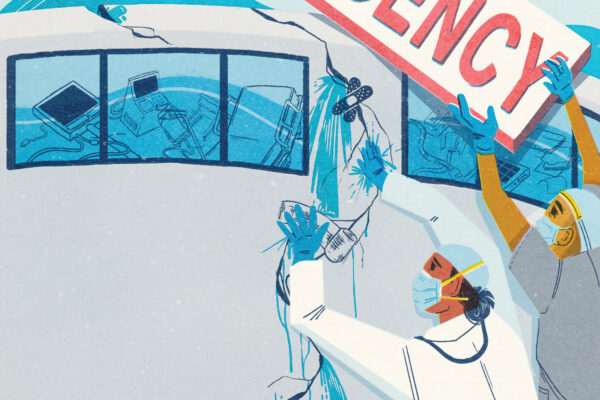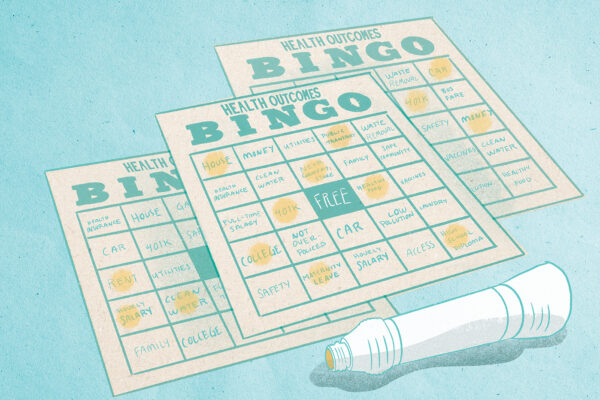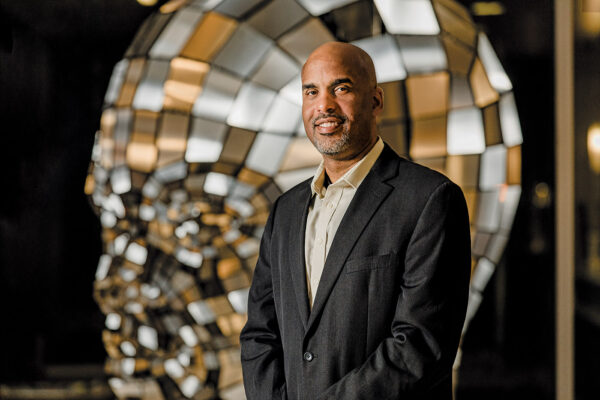Matthew Kreuter, the Kahn Family Professor of Public Health at the Brown School, wrote the book on public health messaging, literally. It’s called Tailoring Health Messages. Plus, he’s the founder and senior scientist of the Health Communication Research Laboratory. So it’s not a surprise that he was tapped to be part of a National Institutes of Health consortium of Universities and Community Partners, which has been working since September 2020 on health communication around COVID-19 testing and vaccination for underserved populations.
When the pandemic started and the communication around COVID-19 became politicized and heated, Kreuter says public health officials were caught in a conversation they weren’t prepared to have.
“What has been a challenge in COVID is that a large segment of the population has viewed COVID precautions as an infringement on freedom and liberty, and it’s pitted these against each other,” he says. It is the economy versus public health or liberty versus social distancing and masking.
“Public health officials are more accustomed to operating at the tactical level: how do I get this health information to these people? Not, how do I talk to the American public about values?”
Matthew Kreuter
“A pretty foundational values conflict has been set up, and I think public health people weren’t prepared to deal with that. They’re more accustomed to operating on the tactical level: how do I get this health information to these people? Not how do I talk to the American public about values?”
With the COVID-19 vaccine, communication has again become critical, and getting the message out that the vaccine is safe and effective has been Kreuter’s primary focus with the consortium.
“There are unique challenges,” Kreuter says. One of the major ones is equity. Public health experts don’t want to create inequity with the vaccine. “At the same time, some of the most underserved populations and vulnerable populations are the least trusting of the vaccine.”
Kreuter says there are aspects of the vaccine working in his favor though. Normally, a vaccine is a prevention against a vague future threat. But getting a COVID-19 vaccine means being able to hug grandma, go out to dinner, return to church or travel to be with family.
“What I hope we are able to do is build a collective consciousness around this, like this is something we are doing together as communities, as Americans, so that all of us can get our lives back,” Kreuter says.



